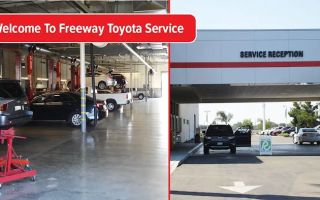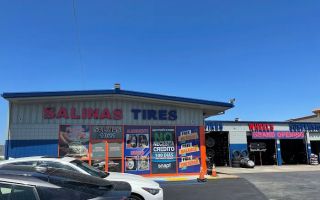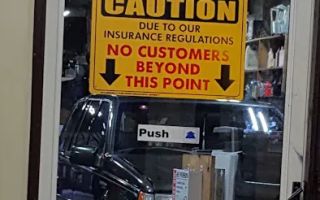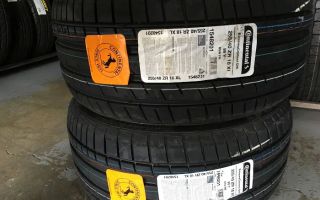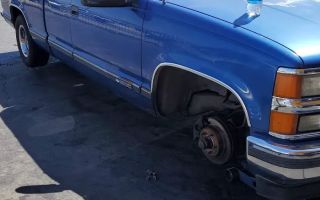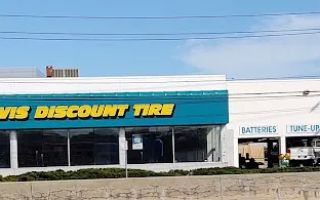How to Know If My Flat Tire Needs to Be Replaced: A Comprehensive Guide
As a car owner, dealing with a flat tire is a common yet frustrating experience. It always seems to happen at the most inconvenient times — during a road trip, before an important meeting, or late at night when you’re already running behind. One of the first things that cross your mind when you find yourself with a flat tire is whether it can be repaired or if it needs to be replaced. This question is vital because not all flat tires are the same. Some can be patched up and saved, while others might require a full replacement. I’ve been there before, and understanding the condition of your tire can save you time, money, and unnecessary stress. In this guide, I’ll walk you through how to determine whether your flat tire can be repaired or if it’s time to call for a replacement.

MR. TIRE INC.
2078 New York Ave, Huntington Station, NY 11746, USA
1. Understanding the Causes of a Flat Tire
Before we dive into whether your flat tire needs replacing, it’s important to understand what causes flat tires in the first place. Over the years, I’ve learned that the cause of a flat tire can vary greatly depending on factors such as road conditions, the age of the tire, and even the way I drive.
Common causes include:
- Sharp Objects: Nails, glass, or other debris on the road can puncture your tire, leading to a flat. This is one of the most common causes of a flat tire.
- Overinflated or Underinflated Tires: Tires that are either too inflated or under-inflated can wear unevenly, leading to premature damage.
- Damaged Valve Stems: A leaking valve stem can also lead to a slow or rapid loss of air in your tire, causing it to go flat.
- Worn Out Tires: As tires age and tread wears down, they become more susceptible to damage from rough roads or even normal driving conditions.
2. When Can a Flat Tire Be Repaired?
The first step in determining if a flat tire needs to be replaced is to assess whether it’s repairable. There have been times when I’ve been able to drive my car to a nearby shop after a flat, knowing that a simple repair would suffice. If you find yourself in a similar situation, here are some key indicators that your flat tire can be repaired:
- Small Puncture in the Tread Area: If the puncture is small (less than 1/4 inch in diameter) and located in the tread area, your tire can often be repaired. Repair shops use a special plug or patch to seal the hole. I’ve had this happen to me before, and a quick repair was all that was needed to get me back on the road.
- No Sidewall Damage: If the puncture is in the sidewall of the tire, it’s generally not repairable. The sidewall is responsible for holding the air pressure, and any damage here compromises the tire’s ability to safely carry the weight of your vehicle. If you suspect sidewall damage, it’s best to replace the tire immediately.
- Slow Air Leak: Sometimes, a tire will lose air slowly due to a small puncture. In these cases, you may be able to drive it to a service station or shop where the leak can be patched. However, this is only possible if you’ve noticed the leak early enough. I recommend checking your tire pressure regularly to catch leaks before they worsen.
3. When Should I Replace My Flat Tire?
Now that we know when a flat tire can be repaired, let’s look at the signs that indicate your tire needs to be replaced. It’s crucial to recognize these signs because driving on a damaged or worn-out tire can be dangerous. I’ve personally made the mistake of procrastinating on tire replacement, only to find myself stranded on the side of the road. Here are the key indicators that it’s time to replace your flat tire:
- Large Punctures or Tears: If the puncture is larger than 1/4 inch in diameter or if there’s a visible tear, the tire is generally beyond repair. Large punctures can compromise the structural integrity of the tire, making it unsafe to drive on. I remember a situation when my tire got punctured by a large piece of metal, and after consulting with a professional, I was advised to replace it.
- Sidewall Damage: As mentioned earlier, any damage to the sidewall is a major concern. Tires with sidewall damage cannot be repaired and should be replaced immediately. Sidewall issues usually result in a blowout, which can be extremely dangerous when driving at high speeds.
- Severe Tire Wear: If the tread on your tire is worn down to the point where the grooves are barely visible, it’s time to replace the tire. Worn-out tires are much more susceptible to punctures and have poor traction, especially on wet roads. I’ve experienced driving on tires with minimal tread, and it significantly decreased my vehicle's handling, particularly in rainy conditions.
- Frequent Loss of Air: If your tire constantly loses air despite having it patched multiple times, it’s likely that the tire is too damaged or old to be repaired. At this point, it’s safer to replace the tire rather than continue patching it. I had a similar experience, and after replacing the tire, I noticed a significant improvement in my vehicle’s performance.
4. How Do I Prevent Future Flat Tires?
Preventing flat tires is not always possible, but there are several ways to minimize your risk of dealing with them. Over the years, I’ve learned a few habits that can help reduce tire damage and keep you on the road longer. Here are some tips:
- Regular Tire Maintenance: I always make sure to check the tire pressure regularly. Under-inflated tires are more likely to suffer damage, so keeping them properly inflated can help prevent flats. I recommend checking tire pressure at least once a month.
- Inspect Tires for Damage: I inspect my tires for signs of wear, cuts, or debris that might have lodged in the tread. Removing objects like nails and glass as soon as I spot them has saved me from having a flat in the past.
- Drive Carefully: Avoiding potholes and rough roads can significantly extend the lifespan of your tires. I’ve noticed that my tires last much longer when I take extra care to avoid road hazards and drive smoothly.
5. Emergency Tire Services and Towing Assistance
There are times when a flat tire happens unexpectedly, and it’s not always feasible to replace or repair it on your own. This is where professional tire services or towing assistance can be a lifesaver. I’ve had my fair share of emergencies, and calling a towing service or roadside assistance has been incredibly helpful.
Many towing companies, like the one I’ve used during a recent trip, offer roadside assistance for flat tires. They can either send someone to change the tire for you or transport your vehicle to a nearby shop for repairs. Having a reliable service to call during these stressful times is invaluable, and I highly recommend looking into local services before you find yourself in a bind.
Whether you choose to repair or replace your flat tire, it’s always a good idea to consult with a professional when in doubt. They can guide you on the best course of action based on the severity of the damage. Don’t let a flat tire ruin your day — taking proactive steps can help you get back on the road quickly and safely.


